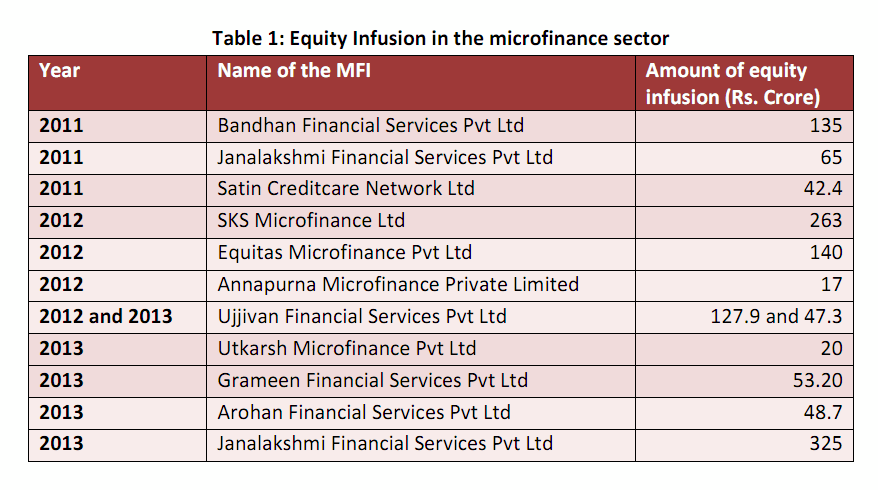Attracting Equity Investors
Post on: 16 Март, 2015 No Comment

Blogged By:
MBDA
Equity capital generally is composed of funds that are raised by a business in exchange for an ownership interest in the company. This interest can be in the form of ownership of common or preferred stock or instruments that convert into stock.
In addition to taking an ownership interest in your company, equity investors may also participate as a member of the companys board of directors and take an active role in managing your company. However, in comparison to debt financing, or loans, which must be repaid over time, equity financing does not have to be repaid.
While equity investing can come from family and friends, its often raised from high net-worth individuals or from venture capital or private equity firms. Investors are looking for early stage companies that cant yet obtain traditional financing; a return on their investment of at least 30-40 percent and a clear strategy to realize their investment within 3-7 years.
What makes a company attractive for equity investment?
Industry Typical companies that receive equity investment are high-growth companies, with the potential for a high rate of return. These high growth industries include the energy sector, technology and media and entertainment to name a few. The companies receiving investment generally have the ability to be a market leader and often capitalize on first mover advantage in other words, being first in a growing marketplace or industry sector.
Clear Exit Strategy Angel investors and venture capitalists are attracted to companies that have a clear exit strategy, allowing them to obtain the return on their investment. Often known as a liquidity event, this includes an initial public offering; private placement, acquisition or merger with another company or management-led buyout. In general, investors are looking to exit an investment within 3-7 years.
Financial Return Equity investors are attracted to companies that clearly demonstrate the likelihood of significant financial returns. In general, these investors would like to see profit margins of more than 50 percent.
Requirements for Obtaining Equity
If your business is a likely candidate for venture capital, you must prepare certain information to sell your idea. This includes a very short oral presentation; an investor-oriented business plan and executive summary; and documentation for any due diligence analysis.
Oral Presentation — In searching for venture capital, you will have to pitch your idea to potential investors, often in informal settings. To do this, you must present your business concept and reasons for a high return in a short, concise (no more than two minute) presentation. If you are then invited to make a formal presentation to a venture capitalists or group of angel investors, these presentations generally last between 5-10 minutes.
Business Plan — You must prepare an investor-focused business plan that remains current based on market or business model changes. This business plan must include the following.
- Executive Summary
- Description of the Company
- Analysis of the Marketplace
- Discussion of Products and Services
- Marketing and Sales Activities
- Discussion of Management and Ownership
- Organization and Personnel
- Funds Required and their Use
- Financial Data
- Exit Strategy
Due Diligence — Any company looking for venture capital should anticipate and prepare for the due diligence analysis that will be undertaken by any investor. In general, investors will want to see support for the assumptions and projections that are made in your business plan and presentation and to assess any liabilities. They will review financial statements, tax liabilities and any other potential legal liabilities. They will also want to test any technology and review any licenses, patents or documentation required to operate your business. In general, if you are seeking venture capital, you should obtain assistance from an accountant or lawyer to ensure that these materials are in order.
Small Business Investment Corporations
Small Business Investment Corporations (SBICs) are privately-owned and managed investment firms that provide venture capital and start-up financing to small businesses. To be eligible for SBIC financing, your business must meet certain SBA size requirements for a small business.
Generally, the SBIC Program defines a company as small when its net worth is $18.0 million or less and its average after tax net income for the prior two years does not exceed $6.0 million. When you contact an SBIC, youll need to present a professional business plan that addresses your companys operations, management, financial condition and funding requirements.
The following resources will help you locate SBIC financing:
SBAs Guide for Entrepreneurs Seeking Financing provides in-depth information about the SBIC financing and eligibility requirements.
SBAs SBIC Directory provides a listing of licensed SBIC investment firms in your state.
The National Association of Small Business Investment Companies (NASBIC) provides a Step-by-Step Guide to SBIC Financing. NASBIC is the trade organization for the SBIC industry, and also provides a directory of SBIC firms.














